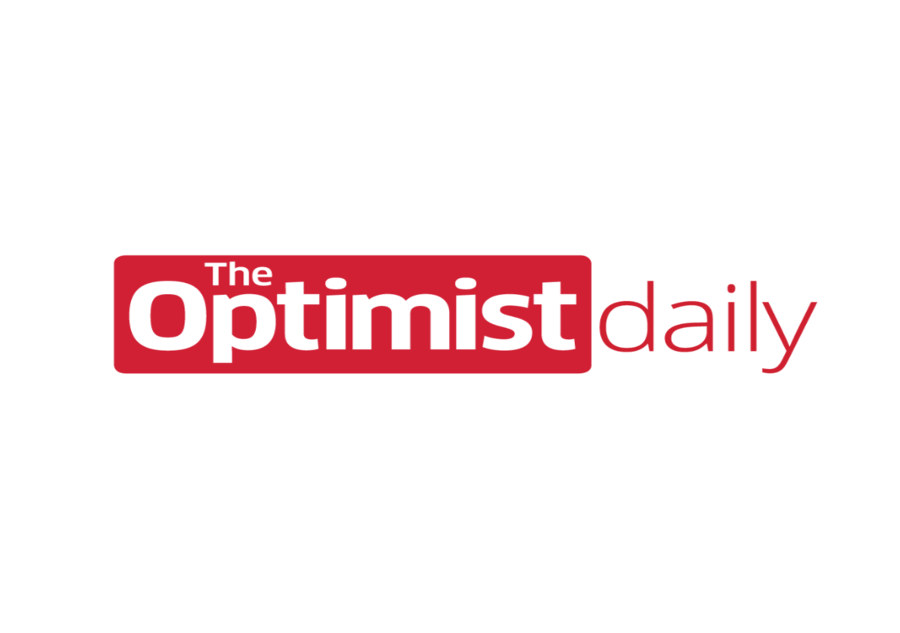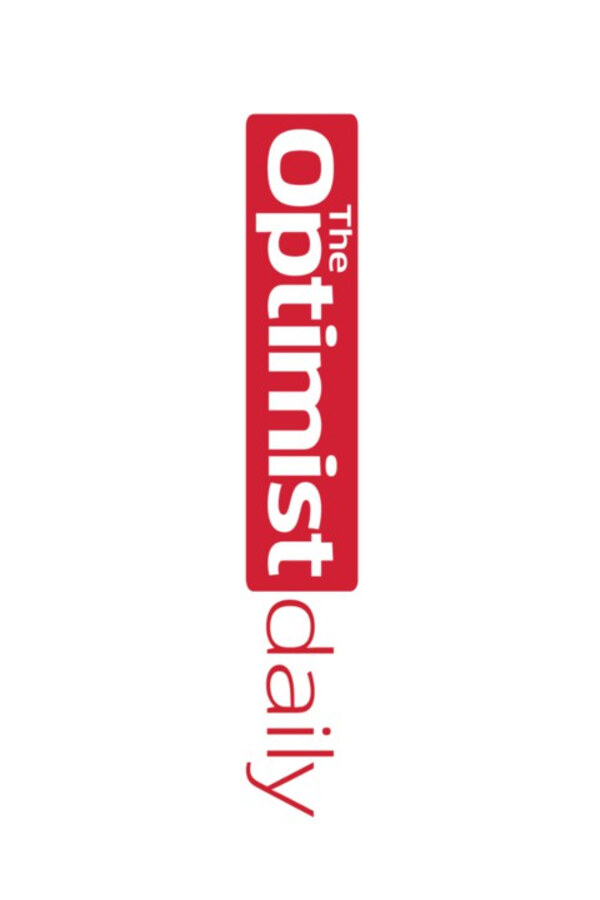From The Intelligent Optimist
Winter 2017
Too many people feel left behind. Their frustrations stand in the way of a peaceful, nonviolent society. Can we revitalize government—the way we run society—so that more people feel included?
By Jurriaan Kamp and Nancy Reed
When our children were young, we used to read the book People, by Dutch-American illustrator Peter Spier, with them. It was one of our favorite books. Spier makes a beautiful point. For pages and pages, he shows how different we are: We have different colors, different noses, ears and eyes, different religions, different clothes and different scripts. We eat different foods, we celebrate different rituals and we play different games. Then, at the end of the book, he writes: “[…]imagine how dreadfully dull this world of ours would be if everybody would look, think, eat, dress and act the same”. And the drawing on that page perfectly illustrates his point . We didn’t like that world. Spier had convinced us: We should celebrate diversity and variety. We should welcome our differences. We should treat others the way we like them to treat us.
Spier’s book was published in 1988. A year later the Berlin Wall came down and the cold war ended. Francis Fukuyama announced the End of History: the unavoidable triumph of the capitalist democracy. Free trade and globalization increasingly turned the world into a global village, an inspiring melting pot of cultures. The rise of democracy squelched the evils of tyrannical government. International trade turned countries into business partners, making peace economically attractive. After centuries of violence, public beheadings, wars and slavery, humanity was finally “civilizing”. Our world became more peaceful. And it’s true. In 1991, the FBI reported 758 cases of violent crime per 100,000 American residents; in 2013, the number had almost halved to 387. And today fewer people die in armed conflicts around the world than ever in history.
Are we really getting wiser? Do we see the nonviolent world of Mahatma Gandhi and Martin Luther King emerging? Recent events around the globe present a different picture. Nationalism is on the rise again. Donald Trump ran a divisive, if not racist, campaign to become president of the United States. Brexit was the biggest blow to international integration since World War II. Nationalist populist politicians like Marine le Pen in France, Geert Wilders in The Netherlands and Norbert Hofer in Austria, are polluting politics with anti-immigrant nationalism and are closer to power than ever. These events may not yet have led to widespread bloodshed; the trend expresses a kind of violence nonetheless.
Something went wrong. It’s not that free trade and globalization didn’t work. Between 1970 and the financial crisis of 2008, global output of goods and services quadrupled and that economic expansion brought hundreds of millions of people out of poverty. However, we also know that all this new wealth was not fairly distributed throughout the whole society as Thomas Piketty has convincingly argued in his Capital in the Twenty-First Century. The increasing economic inequality is feeding social unrest that is exploited by the populist politicians with refugees and immigrants as the first victims. The world is retreating from Peter Spier’s images of harmony in diversity. Rising forces of protectionism threaten the process of globalization that has been spreading peace around the globe. The flaws of capitalism breed violence.
The San Francisco Bay Area, that is home to the tech companies that dominate the online world, presents an illustrative picture of the problem that free market capitalism presents. Companies like Apple, Google and Facebook generate billions for their shareholders. However, that concentration of wealth undermines the society that supports the market without which these companies ultimately cannot survive. Real estate prices are driven to levels that prevent “normal” people from buying a house. I recently listened to a radio interview with a married couple. Both spouses were schoolteachers in their early thirties. They wanted to buy a house in the Bay Area but they couldn’t see how their jobs would allow them to realize that dream in any foreseeable future. Most middle-class people who work in San Francisco, must endure long commutes and bottle-necked traffic across bridges and highways in order to find a modest place to live far from their jobs. The stress which is created by such congestion and competition for space is palpable to anyone and everything—both natural and human—within 100 miles of the city.
Each society needs school teachers. If school teachers—typical representatives of the middle class—cannot buy homes near their work places, society has a problem. It’s a problem you can also see when you drive along poorly maintained roads with potholes through parts of downtown Oakland, a stone’s throw from Silicon Valley, where public school buildings don’t have the funds to repair broken windows. The San Francisco Bay Area is one of the wealthiest parts of the wealthiest nation on the planet. Yet, there are signs everywhere that government is underfunded and can’t meet the obligations to its citizens. In that process privatization is offered as an efficient solution to support the needs of society with disturbing outcomes. Prisons are privatized and are now operated by companies who need long-term customers not temporary inmates who are restored to society.
The same companies chase the cheapest labor wherever possible. Factories at home are closed and replaced with sweatshops in faraway places. Donald Trump promised the electorate of the white angry voter with a poor education, that he would he would bring the production of goods and services back to America. But here’s the interesting dynamic: That same voter is putting himself out of business because he needs to buy the cheap goods from China in Walmart to survive. The lifestyle of the middle class depends on low wages and barbaric working conditions in the Third world. The capitalist machine drives the money to a few at the expense of all.
Jeffrey Winters, professor of political science at Northwestern University and author of Oligarchy, created the Material Power Index. According to that index the average income of the top 400 tax payers in the U.S. is more than 10,000 times the average income of the bottom 90 percent. According to Winters the ratio roughly corresponds with the difference between a senator and a slave at the height of the Roman empire. We know where that ended. Such discrepancy of wealth opens the door to “an invasion of savages” as the state collapses from within.
There needs to be a better—more just and fair—distribution of wealth for nations to continue to thrive. Marx knew that 150 years ago. He saw the effects of the early stages of the industrial revolution in England. Today, he would find the same wrongs in Shanghai or Mumbai. But Marx’ theories have been grossly misused and the experiments with communism have brought disaster as well. Again, capitalism “won” in 1989. But that may have been a Pyrrhic victory if capitalism is not able to create a society that works for all in the long term.
There’s nothing wrong with the principles of the market economy as Adam Smith laid them down in his An Inquiry into the Nature and Causes of the Wealth of Nations in 1776. Trade makes sense and can enrich all. However, markets need guidance and regulation. That “supervision” has to come from the very people that the markets are supposed to serve through the process of democracy. Capitalism requires laws and independent regulatory authorities. It can be tamed with government control. So the question is: Why does democracy not serve as the corrective of capitalism it needs to be?
That’s the question that linguist and social critic Noam Chomsky has been answering for a few decades: One of the effects of a high concentration of capital inequality is that democracy is weakened. “This is not our government. It is not the government of the people. It’s a government of the overwhelmingly rich, of the corporations and the wealthy… And so it does what they want,” Chomsky says. Politicians need money from wealthy donors for their elections. When they get elected they return the favor, often in subtle, sometimes in blatant ways. Tax cuts are introduced again and again to strengthen the economy despite the fact that abundant research shows that such measures mostly benefit the people who are already rich and undermine the funding of the services that most people need. Many people feel rightly abandoned. They have been.
The administration of Barack Obama can be proud that it has not been the subject of any controversy or allegation of corruption during the past eight years. That’s a major achievement given recent experience in the U.S. However, Obama needed funds for his elections as well. And some of these funds came from corporate sources that are not in business to serve society at large. Obama has appointed officials with clear ties to agrochemical multinational Monsanto in key positions. At the very least, there are legitimate concerns about the effect on health and environment of the chemicals that Monsanto promotes and sells and these officials don’t have the independent minds that are needed to protect common interests. In other words, even if we are not talking about criminal corruption, there’s an ongoing exchange of favors taking place in the government capitals of the world in which 99% of the population does not participate.
Government—the way we run society—has to change. That is: The balance between government and the market needs to be restored. This rings trouble in the ears of many who believe—as Ronald Reagan famously said—that “government is the problem”. I think we may paraphrase Reagan’s message: When he spoke about government, he meant “bureaucracy”, the machinery of red tape that slows down innovation and entrepreneurship. He was right about that. Bureaucracy provides no solution to the flaws of capitalism.
The challenge is to find a way for government to better express the voice of the people and to set priorities for society in the interest of all. That’s democracy—from the Greek demos for people and kratos for power or rule. Democracy is supposed to be the “rule of the people”. But that democracy is broken. That’s the increasingly louder message that angry voters are sending through the election of anti-establishment candidates. Despite the fact that they have the right to vote for the candidates of their choice, too many people don’t feel represented. The electorate moves between anger and apathy. Hillary Clinton won the popular vote in the recent U.S. presidential election but she received fewer votes than Barack Obama in 2012. And Trump mobilized fewer voters than Republican candidate Mitt Romney four years ago. That means that people are participating less and less. Harvard University researcher Yascha Mounk and Roberto Stefan Foa, a political scientist at the University of Melbourne conducted a historic analysis of attitudes toward government in a new study. Their conclusions are shocking. Half of the older citizens in the U.S. and Europe outright object to military coups. However, among millennials on both sides of the Atlantic Ocean up to one third of the electorate would be open to trying something new, like government by military coup…
So, any path to a more inclusive, more fair and just and nonviolent society has to begin with the question: Can we fix democracy and, through democracy, capitalism?
The democracy we know, is not the democracy the Greeks created some 2,500 years ago. We have indirect democracy. We may vote for our representatives once every four years. We don’t directly participate in government. The Greeks, however, had direct democracy in which all citizens—of course, painfully, excluding women and slaves—participated. By lottery a Greek citizen would be chosen to take his part in legislation and even in the executive branch. We know that system in legal proceedings where a trial by a jury is used to decide whether someone has broken the law. We feel comfortable that juries of random people, not experts, decide whether someone is guilty or not.
Exactly the same system can be used to involve citizens in government. It requires a return to the central principle of Athenian democracy: drafting by lot or, as it’s officially called, sortition. Experiments with sortition are being successfully applied around the world as David van Reybrouck describes in his excellent book Against Elections: The case for democracy. In 2012 Ireland began a convention to revise several articles of the constitution. The participants were 33 elected politicians and 66 ordinary people chosen by lot. The group met one weekend per month for more than a year. The convention discussed, among other things, same sex marriage and the rights of women. The participants listened to experts and they received input from other citizens and subsequently drafted recommendations that were presented to parliament and, later, to a national referendum.
What would happen if, for example, the fate of Obamacare would be discussed by such a random group of drafted citizens who would hear experts and listen to proposals? What if the rest if the country would be able to follow their discussions and contribute to it through online platforms? How would their proposals and recommendations compare to these of elected politicians who are chased by lobbyists of pharmaceutical and insurance companies and who need money for their next election? Which outcome would provide a better reflection of the voice of the people and would better serve their interests?
Of course, the obvious argument against direct democracy is that citizens are not experts. That’s why the Founding Fathers devised indirect, representative democracy in the first place. They didn’t want the masses to rule. They feared reckless and irresponsible behavior. Was that ever a fair argument? Recent experiments with microfinance in developing countries show that poor, illiterate people are very well capable making wise decisions that serve their own interests as well as their communities and their environment. Tribal societies express such wisdom too. If we agree that 12 randomly selected people can decide in good faith about the freedom or imprisonment of a fellow citizen, we can be confident that a similar random group can make responsible decisions about any other issue in a way that serves the interests of society at large. Why would we accept the principle of sortition in the justice system and not in the legislative system? As David van Reybrouck writes: “We already use a lottery like this every day, but we use it in the worst possible form: public opinion polling.” He cites political scientist James Fishkin: “In a poll, we ask people what they think when they don’t think. It would be more interesting to ask what they think after they had a chance to think.”
Sortition may not be a perfect solution for all the current ailments of society. But given the widespread frustration, it’s a step we can no longer avoid. We have to involve citizens so they feel more connected to their society. And sortition is a system that has been proven to work. In the 1980’s the Brazilian Workers Party, the political party of ex-president Lula, started a process of participatory budgeting in the relatively wealthy southern Brazilian city Porto Alegre. Ordinary people were invited to decide how to allocate part of a municipal or public budget. The process led to outcomes that are not surprising: In 1985 Porto Alegre spent 13 percent of the budget on health care and education; in 1996 that share had increased to 40 percent. Participatory budgeting has been a huge success in Brazil. In 2001 more than 100 cities in the country were implementing it and by 2015 thousands of variations had been implemented in many other countries around the world. Studies have shown that participatory budgeting leads to more equitable public spending, greater government transparency and accountability and to increased levels of public participation.
Citizen councils selected by sortition would make different—and arguably better—decisions on tax and spending policies that would serve and include more people. They would set rules for the “game” of capitalism so that the markets can truly serve as many people as possible. Direct democracy would provide an appropriate and necessary response to the “military industrial complex” that Dwight Eisenhower warned against more than half a century ago. Direct democracy is an essential element of a more inclusive society. When people feel their voices are heard; when people feel their needs are understood; and their priorities are reflected in policies: they are less angry, less frustrated and less violent.
In addition to the need for a more citizen-directed democracy, there are economic trends that support a more equal society and that can be stimulated. In the second half of the 19th century, when the Industrial Revolution took off, work transitioned from something that you created with your own talents to a job that was given by a big company. Since then generations have grown up with the belief that job security is one of the highest goals of a good life. The system did work and has provided millions of people with safety and security in recent decades. But it doesn’t work anymore. Even if Donald Trump would aggressively punish corporations for closing domestic operations and moving factories overseas, the days of the job-providing corporations are gone. Corporations want to employ as few people as possible. Their main focus is efficiency and cutting costs. Corporations want work to be done by—cheaper—machines, robots, not by people. The answer to the angry voter who lost his factory job, is not going to come from big industrial conglomerates.
But there’s a new economy emerging that allows anyone to sell his or her talents. The online sharing economy makes it possible to create your own work in ways that were never possible before. In the past, the market for your unique talent was determined by access. If your talent was, for example, teaching playing the piano, you could not live and sustain yourself in a small village, where you would not have enough student. So you may have been forced to take a job that you didn’t really like because where you lived the market for your unique talent was too small. The Internet has changed that. Today, anyone can sell any talent everywhere in the world through an (interactive) online video course. A recent study shows that already one in six Americans are considering starting a new career in the sharing economy.
It’s not to say that this is an easy transition for a factory worker who was used to building cars in Detroit and who has not grown up thinking how best to market his unique talents. But the opportunities of the sharing economy are there for everyone—from the lower hanging fruit of becoming an Uber driver using a platform created by others to using easy and cheap online marketing tools to sell a unique service.
We cannot underestimate what it means for peace in society when people will be able to turn their own talents into income—incidentally, in ancient Greece the talent was a measurement that also served as currency. There are few things more fulfilling than being able to serve others with your gifts and to be able to support yourself that way. From that individual satisfaction healthy and peaceful communities will flourish. Arun Gandhi beautifully describes (see page XXX) how his grandfather, Mahatma Gandhi, taught him that violence begins where people are not able to provide and care for themselves. Individual frustrations create violent societies.
The sharing economy is rapidly spreading and more and more people are engaging. It’s a process that doesn’t require political leadership but it can be supported and stimulated. An active government can help people who lost their jobs to find their way in the new economy.
Ultimately, direct democracy and the sharing economy are not miracle tools to bring more harmony in society. They are instruments that work. But we also know that there’s no structure, no plan that is waterproof against human greed. We not only need wiser systems; we need wiser people too. And the best news is that—despite the outcry of the angry voter—the trend towards more wisdom is clearly visible as well. Meditation and mindfulness are spreading like wildfire around the globe. Meditation is even one of the most powerful new trends on Wall Street—the place where only money counts. It may be that it’s the stress of the stock market, the two-hour commute to work or the 24-hour hectic society, that drives this trend. It may be simple self-interest to meditate in order to cope with too much stress. But the result will be the same. When more and more people will take time for reflection, they will discover that they are connected—with other people, with the environment and even with different religions and spiritual paths.
As more and more people choose the path of awareness and consciousness, these people will look for solutions and modifications to capitalism and democracy that will serve and include more people. That’s an unavoidable outcome. We are on a path from institutional nonviolence provided by the international structures we build since World War II to individual nonviolence that naturally flows from the hearts of people. That’s the silver lining beyond the frustrations that are now so openly expressed. Children have no problem understanding and appreciating the beauty and the harmony in diversity in the images of Peter Spier. They know that’s our natural world.















